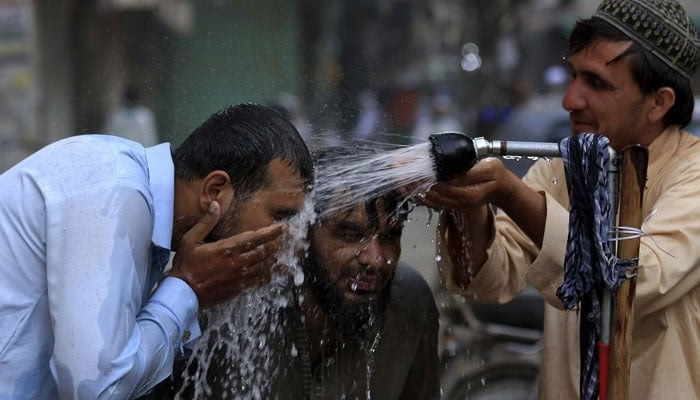A significant heatwave is expected to impact most areas of Sindh starting today, as weather experts warn of soaring temperatures driven by high atmospheric pressure. The Pakistan Meteorological Department has issued an advisory stating that this spell of extreme heat is likely to continue until May 20, urging citizens to take necessary precautions.
Widespread Heat Across Interior Sindh
According to the Meteorological Department, the high-pressure system currently prevailing in the region is causing an unusual rise in temperatures across various districts of Sindh. The interior regions of the province are expected to bear the brunt of the heatwave, with temperatures soaring 5 to 7 degrees Celsius above average in several key cities.
Districts most affected include:
- Dadu
- Shaheed Benazirabad
- Naushahro Feroze
- Jacobabad
- Sukkur
- Surrounding areas
These areas are already known for their typically high summer temperatures, and the current heatwave is expected to push conditions into dangerously high territory. Local authorities are expected to monitor the situation closely and advise residents on how to cope with the extreme heat.
Moderate Increase in Other Districts
While the interior parts of Sindh will see a dramatic spike in temperature, other districts will also experience hotter-than-usual weather, though not to the same extreme. According to the Met Office, areas like:
- Badin
- Tharparkar
- Umerkot
- Hyderabad
…are likely to see temperatures 3 to 5 degrees Celsius above the seasonal norm. Even though these increases may seem modest compared to interior Sindh, they can still pose serious health risks, especially for vulnerable populations including children, the elderly, and those with pre-existing health conditions.
No Heatwave for Karachi, But Hot and Humid Weather Ahead
As for Karachi, the Meteorological Department clarified that no formal heatwave is expected in the coastal city. However, that does not mean Karachiites will be spared from discomfort. The city is expected to experience hot and humid conditions, with daytime temperatures hovering between 35°C to 37°C.
Due to elevated humidity levels, the “feels-like” temperature could be significantly higher, increasing the discomfort index for residents. The Met Office warned that humidity will amplify the perceived heat, especially during midday hours when the sun is at its peak.
Precautionary Measures Recommended
In light of the expected temperature surge, experts and health authorities have advised residents throughout Sindh to take necessary precautions to avoid heat-related illnesses such as heatstroke and dehydration. Recommended safety tips include:
- Avoiding outdoor activities during peak daylight hours (11 a.m. to 4 p.m.)
- Staying hydrated by drinking plenty of water
- Wearing light-colored, loose-fitting clothing
- Using hats, umbrellas, or shaded areas to minimize direct sun exposure
- Ensuring elderly family members and children are kept cool and hydrated
The Pakistan Meteorological Department is continuing to monitor the evolving weather conditions and will provide updates as the heatwave progresses.
Climate Patterns and Urban Impact
Experts attribute the recurring heatwaves in Pakistan to shifting climate patterns, which have increased the frequency and intensity of extreme weather events. Urban centers like Karachi are especially vulnerable due to concrete infrastructure and limited greenery, which trap heat and contribute to what is known as the urban heat island effect.
Environmentalists have long urged local governments to invest in climate-resilient infrastructure, expand green spaces, and improve public awareness about heatwave preparedness. These long-term steps are becoming increasingly crucial as climate change continues to alter weather behavior across South Asia.
As Sindh braces for a challenging heatwave, both authorities and the public must remain vigilant. While some areas will experience extreme temperatures, even those with moderate increases are at risk. With May historically being one of the hottest months in Pakistan, this heatwave serves as a stark reminder of the urgent need for climate adaptation and community-level awareness.
Residents are advised to follow weather updates and adhere to safety guidelines to protect themselves and their loved ones during this period of intense heat.



